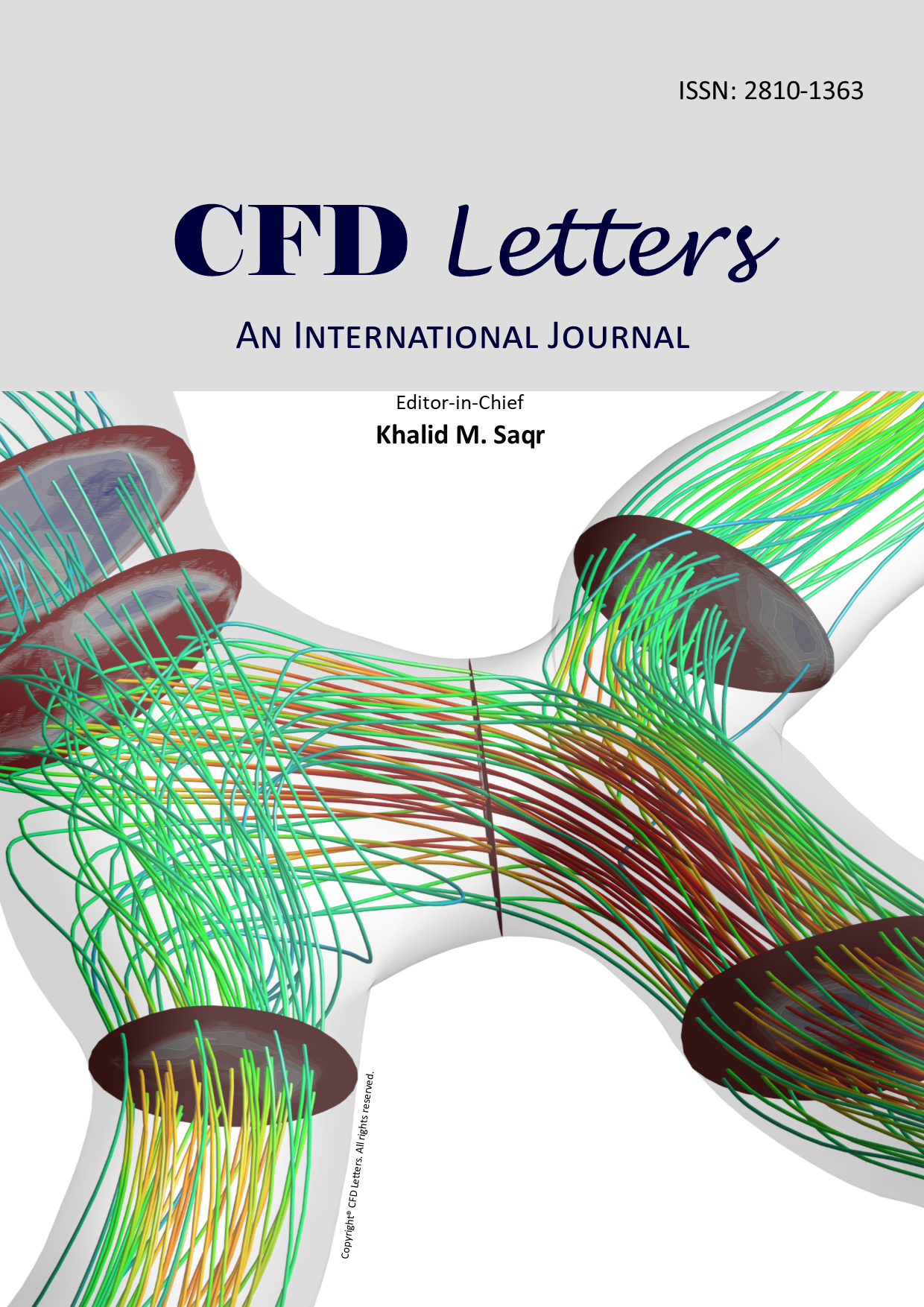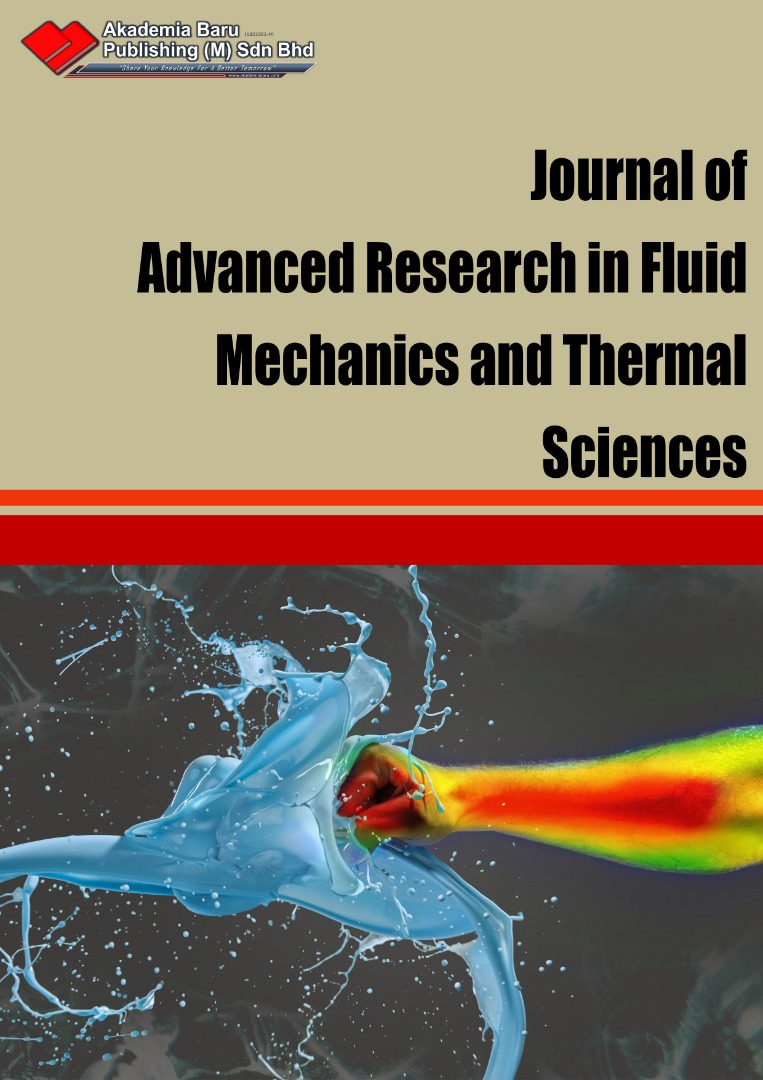Effect of Turbulence Intensity on Turning Diffuser Performance at Various Angle of Turns
Keywords:
3-D turning diffuser, turbulence intensity, pressure recovery coefficient, flow uniformity, Computational Fluid Dynamics (CFD)Abstract
The performances of turning diffuser are highly affected due to the nature of its geometries by the existence of flow separation and dispersion of core and secondary flows. Turning diffusers with potential turbulence intensity may lead to optimum performance. However, there has been yet insufficient literature on 3-D turning diffuser fluid flow performance analysis by varying inlet turbulence intensity. Hence, this study aims to investigate the effect of turbulence intensity on 30o and 90o 3-D turning diffuser performances. The performances of turning diffusers were scientifically evaluated in term of pressure recovery coefficient, Cp and flow uniformity index, ?out while turbulence intensity was varied from 1.5% to 7.5%. This work involved both numerical and experimental methods. ANSYS Computational Fluid Dynamics (CFD) was used for the simulation and Particle Image Velocimetry (PIV) for the experiment. The inlet free-stream turbulence intensity was varied which imposed on the flow by suppressing the separation of the inner wall boundary layer and mixing to provide optimum uniformity of the flow. The pressure recovery increased 8.02% and 9.74% while the flow uniformity improved about 2.95% and 1.60% in 30° case and 90° case respectively. In conclusion, the 7.5% of turbulence intensity is promising to introduce in the ducting flow application so as to improve the pressure recovery and the flow uniformity of both 30° and 90° turning diffuser cases.













